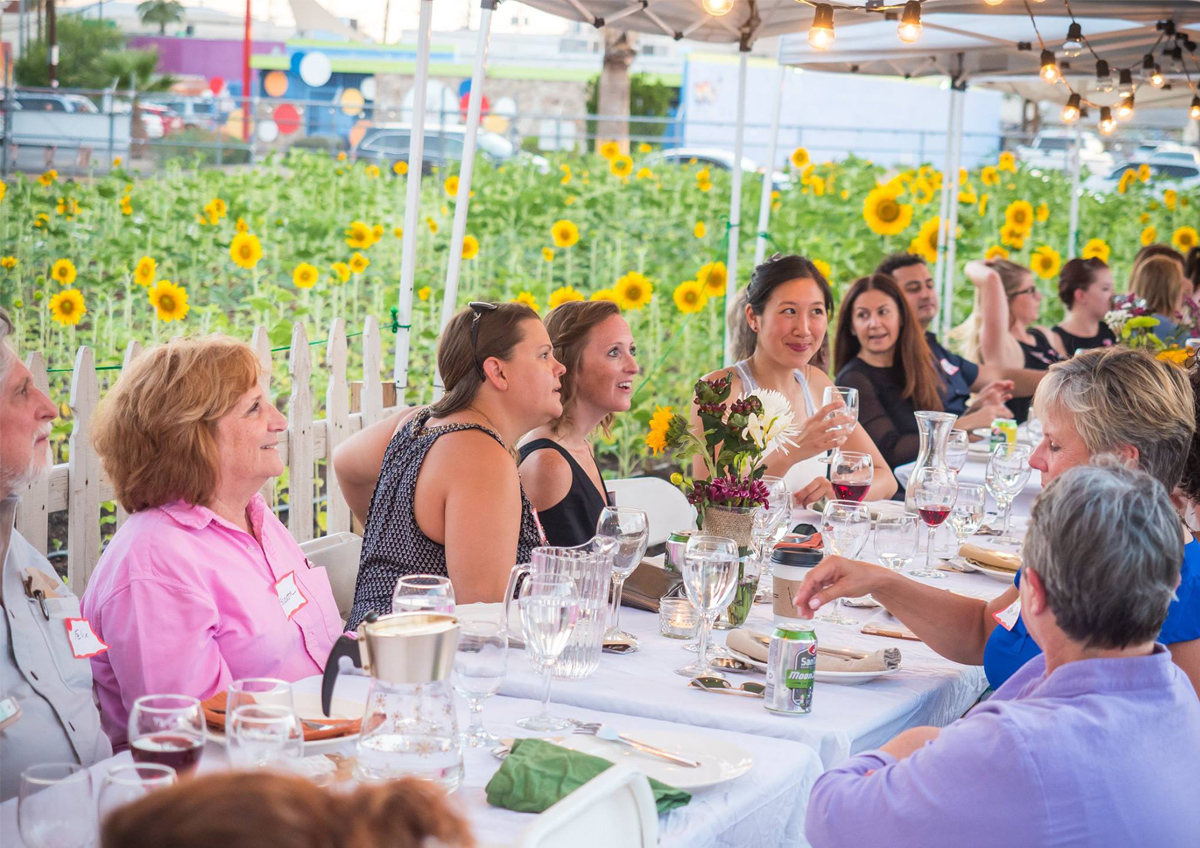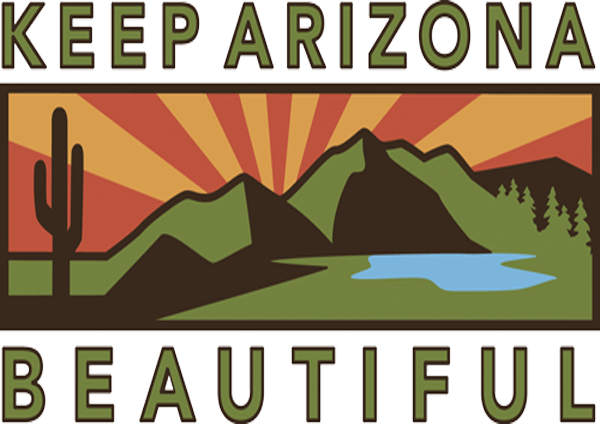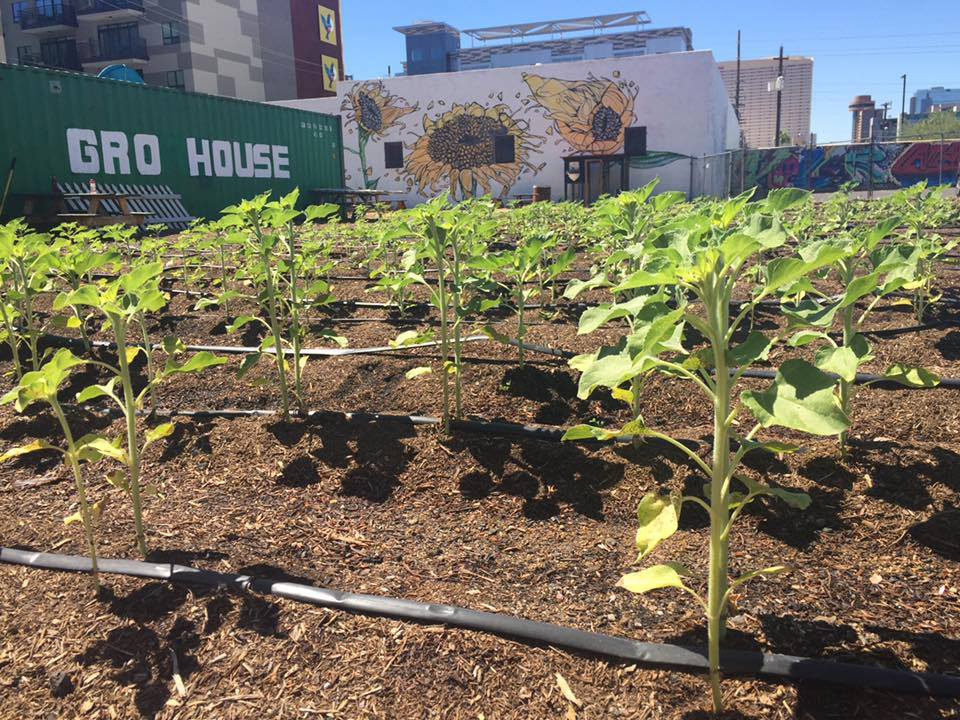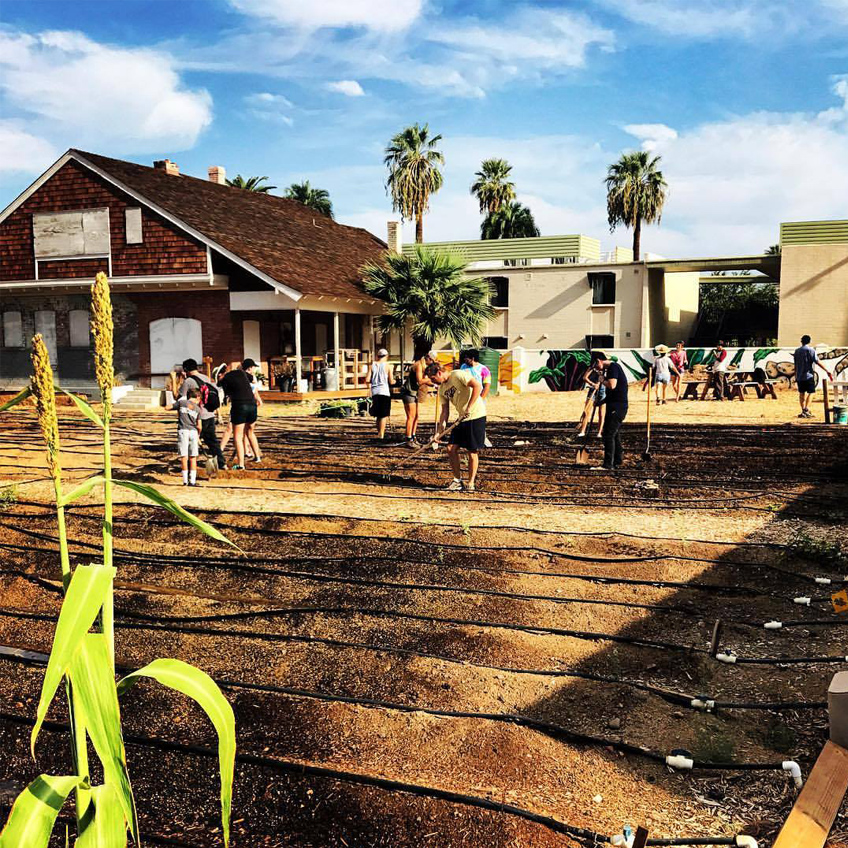
 By Jill Bernstein
By Jill Bernstein
Rural Spotlight typically focuses on the accomplishments of rural communities that address litter, create recycling options, and beautify their community in unique and interesting ways. This month, we’ve turned our attention to a unique urban farming project in the heart of downtown Phoenix that provides a case study in how any community, whether urban or rural, can take a blighted spot and turn it into a point of pride and community connection with benefits far beyond what you might expect.
In 2008, Roosevelt Growhouse was created by two artists on a vacant corner in downtown Phoenix as an informal greening, arts and revitalization initiative. For the last nine years, Kenny Barrett and Joshua Hahn have expanded the project, gathering volunteers and supporters along the way. More than a simple vegetable garden, Growhouse has become an integral community action space in the urban heart of Phoenix. Through volunteer gardening days, cleanups, shared dinners and other events, Growhouse supports local food production, creates deep community connections, and demonstrates the value of greening, beautifying and making productive use of vacant lots.
In 2011, the Roosevelt Row Community Development Corporation adopted the garden as part of the vacant lot activation program A.R.T.S. (Adaptive Re-use of Temporary Space), enabling the initiative to reach deeper into the community and expand their impact. In January 2017, the farm moved from the original Sixth Street location to 1025 N. 2nd Street (just a few blocks west and north), a vacant lot next to the historic Knipe House. Kenny Barrett, the enthusiastic and creative force behind the initiative, immediately began bringing the new location to life by planting a field of sunflowers to “purify the soil and pull out any heavy metals.”
 While Barrett has remained the leading champion and creative force behind Growhouse, much of the hard work of preparing the soil, planting and nurturing the seeds, and reaping the bounty of the garden continues to depend on the dedication of dozens of community volunteers. Most of the volunteers come from the surrounding downtown neighborhoods, but the popularity of the project brings people from all over the Valley. Everyone is invited to participate. Growhouse Garden Volunteer Days are held every Saturday from late September through late May, 10:00 a.m. to 12:00 p.m., at the current site.
While Barrett has remained the leading champion and creative force behind Growhouse, much of the hard work of preparing the soil, planting and nurturing the seeds, and reaping the bounty of the garden continues to depend on the dedication of dozens of community volunteers. Most of the volunteers come from the surrounding downtown neighborhoods, but the popularity of the project brings people from all over the Valley. Everyone is invited to participate. Growhouse Garden Volunteer Days are held every Saturday from late September through late May, 10:00 a.m. to 12:00 p.m., at the current site.
After the sunflowers bloomed and were harvested, the garden waited out the heat of the summer while Barrett prepared for the first fall crops. Volunteers began planting in September, and the crops planned for the season include lettuce, Swiss chard, kale, beets, carrots, wildflowers, desert marigolds and herbs. When the crops come in, volunteers are invited to take home part of the bounty, but most of the food currently being produced goes to UMOM, a nonprofit organization focused on providing shelter, services and affordable housing for homeless families.
 Today, Growhouse is the urban farm that is more than just a garden — it is a place to learn about urban desert vegetable farming, sustainable living, healthy eating and edible landscaping. In addition to developing and harvesting an array of edible crops, Growhouse provides workshops and hosts events, including the popular annual dinner in the garden that strengthens their impact in the community.
Today, Growhouse is the urban farm that is more than just a garden — it is a place to learn about urban desert vegetable farming, sustainable living, healthy eating and edible landscaping. In addition to developing and harvesting an array of edible crops, Growhouse provides workshops and hosts events, including the popular annual dinner in the garden that strengthens their impact in the community.
When asked what inspired him to launch this project nearly 10 years ago, Kenny replied laughingly, “I wanted to connect with where my food was coming from. I had an honest curiosity, what does a Brussels sprout plant look like?”
Even at the beginning, his curiosity and passion went beyond just food. “The area was so vacant and blighted,” Barrett said of the lot. “We had an opportunity to make it our own. To make it a connector zone for community members. We see Growhouse as a green gateway to downtown for people. It’s a free weekly way for people to get involved in the downtown community.”
What has been the most gratifying part of this experience for Barrett? “For me, the most gratifying thing is having a place where I can go dig in the dirt and spend time in the sunlight connecting with my neighbors in a meaningful way over hard work, and achieving our common goal.”
Learn more about Growhouse on their Facebook page.
Jill Bernstein is the Executive Director of Keep Arizona Beautiful, a statewide nonprofit organization dedicated to empowering communities to take care of their environment through litter abatement, recycling and beautification.





